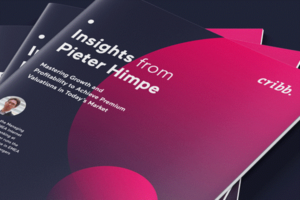John, you are leading the Global Digital Innovation team at Boehringer Ingelheim. Do you mind explaining what exactly you are working on?
The team cover a range of projects; some of which are more innovative than others. For example on the less ‘innovative side we are trying to globally centralise digital technical production for our iPad sales aid. The main challenge here is convincing teams in countries to use a global service and not their local agencies with which they have an existing relationship. The two main innovation projects are The Future of Health report 2014 and a social game called Syrum.
The Future of Health report is a project that identifies the key trends developing in healthcare and best in class examples. So for example, one trend we identified we called Incentivised Wellness. Incentivised Wellness is a reward-based model of preventative healthcare that rewards people for leading healthier lifestyles. Companies that exemplify could be DietBetter or Movimento. We did the report with a New York based, trends agency called PSFK, who I met at a conference 3 or 4 years ago. We work with them to supply cutting edge, innovation orientated, content for our Corporate Facebook feed. My brief to them was simple: give me content that sounds like it’s either made up or from the future, but isn’t. We called it The Future Just Happened.
Syrum is a social game where players get to run their own pharma company. You have to go through various stages to develop drugs in order to beat diseases and save the world. You can compete or collaborate with friends (it’s a social game, on facebook), buy and train staff, customise you lab, do humanitarian missions and even use real life check-ins to boost your game points.
Do all pharmaceutical companies have teams similar to yours in place?
I think most of the big ones do; but that doesn’t mean they are looking at the same things. In fact there are several innovation teams within Boehringer Ingelheim looking at different aspects of innovation. There were probably innovation teams looking at disruptive technologies back in 2008/09 when we moved into social but us and Novartis were still the first to use it. And I would say Boehringer understood the medium – the social, humanistic side – way before others. It’s easy to look at and identify trends but actually connecting them to business needs and acting upon them to produce something of business value is a lot harder. No other pharma have come close to something as creative as Syrum. But then, other pharma have excelled and innovated in areas we haven’t. For example, I’m always impressed by the far-seeing strategic vision of Merck to set up Univadis (a physician professional network) 10 years or so ago. I’d love to have access to that network but that particular ship has sailed.
Pharmacos are hugely innovative companies in R&D so it should come as no surprise that they have teams focussed on innovation. In my opinion they try and approach this from a scientific rational perspective, like clinical development, whereas with my background, I have a creative entrepreneurial perspective. I trust my gut feelings.
Do you mind giving us some insights about the challenges pharmaceutical companies face due to the digitization?
Huge challenges but ones born from a successful model. Pharma have made large amounts of money from an old business model which is still successful. The pressure to change is apparent, but not yet critical.
Internally we are still structured around traditional sales teams who until last year largely still used paper selling aids. The commercial teams are full of people who are sourced from the sales teams (you have to have carried the bag to work in marketing) who don’t understand the digital transformation that has taken place with their customers. To be completely fair, doctors are a very conservative bunch and they have resisted digital. There are plenty of studies that show prescribing habits are not influenced by digital channels. In fact the fax machine is still considered a legitimate marketing channel in Germany.
I’ve seen your presentation “How would Google do Pharma?” on Slideshare. So, could you briefly summarize how Google would do Pharma?
I had to go and take another look at that to remind myself; I built that presentation in 2009 and it’s been a few years since I looked at it. I think certain elements are still relevant: Google would use crowd sourced, innocentive style platforms for R&D collaboration, pricing would be the lowest price the market can bear (like how they revolutionised the online ad market), they would be embracing AI and clinical decision, support networks to conduct virtual diagnosis and use complex algorithms to predict the spread and effect of diseases. Most of these things are being used in some form or another in pharma today, but not so much in 2009. And of course, the irony is, Google and other tech companies are starting to move into the healthcare space now.
You are broadly recognized as a true innovator and pioneer in the field of social media at pharma companies and received – most recently – the eyeforpharma Customer Innovation Award for “shedding the misconception that pharma and social media don’t mix”. How did you achieve this?
By reminding the world that large corporations are just large collections of human beings who are in the business they are in because they are passionate, empathic and they care about the work they do. Social Media enabled us to do this. I made sure that we everything we did had a personal, emotional touch. From the quirky, slightly humorous language (the terms and conditions stated: please stick to the rules or our lawyers will get mad at us) to the cartoony (Mashable influenced) backdrop superimposed with photos of us. I also tried to speak very openly and honestly to peers at conferences about the challenges we were facing and how we overcame them. We also constantly tried to innovate around the content. We were the first company to run disease awareness tweet chats, we ran photo competitions, at one point I think we were the only pharma company to have open comments on Facebook (until Facebook forced everyone to have open comments). And then there’s Syrum – our social game.
23andme recently had a set-back due to the FDA. They had to stop selling their healthcare services. Susan Wojicki announced to cooperate in order to bring it back. Do you think this kind of genetic analysis will be the future? And which impact would it have on pharmaceutical companies and development of drugs?
Definitely and I think they’ll be back online before too long. 23 & Me aren’t the only company doing this but they do seem to get all the attention. I am absolutely convinced that this type of service will be the future and I think the impact of it could be profound. From the way we connect, how we decide who we want to have children with, how we plan out lives and ultimately our deaths. It could also have a positive and a negative impact on things like insurance plans. There is always the danger that anything like this – anything involving big data – can be co-opted to do harm. So here has to be safeguards.
For pharma it could mean that the shift to prevention is focussed on much more. If a person understands that they have a statistical likelihood of developing a condition, then they will be looking for ways to prevent that from occurring. Most of our focus is on treatment and if most treatment options are lifestyle factors. While there are some drugs – like statins – that are used for treatment, perhaps more treatments will be developed that are able to manipulate or change DNA/ Gene therapy for example via pill or course of injections that stave off Alzheimer’s. There’s probably a huge market there – just look at what someone like Angelina Jolie did based on her likelihood of contracting cancer. There has to be a better way in the future than discarding body parts?
Last question: Everyone is talking about digital transformation and that companies from the so-called old economy need to address it urgently if they want to survive. However, setting up an online-shop is neither a disrupting and revolutionizing step nor a long-term digital strategy. Imagine we are in 2050, do you have an idea what pharmaceutical companies will look like?
With R&D timelines as long as they are we can already predict how things will look from a clinical perspective in 2030. But in terms of how pharma operate it will be vastly different. We can already see tech converging on healthcare and trying to apply their way of working into healthcare. They don’t have it quite right yet but by 2050 they’ll have it in hand. We should see the transformation of treating medicine into preventing illnesses. Pharma will be in the business of enabling health rather than treating illness. Also by 2050 healthcare costs will have become so unaffordable that there will have been a transformation. As a result we’ll probably see an increase in smaller novel, personalised medicines that take account of genetic differences. The shortage of doctors will have reached such a point that we’ll be relying on algorithms and non-personal dispensing for the majority of conditions. But then, most chronic conditions by then, will be treatable and a thing of the past. With all this pharma had better improve at dealing with people. Trust will be a valuable commodity that will be measured and valued as much as revenue. If we really want to get kooky, I believe we’ll be living in a post-pandemic world by then. We’re due a big pandemic, and when it comes it will hit us hard wiping out whole swaths of population. We could be living in pre-industrialised state by then back to ‘alternative medicine’; you never know!
Thank you, John!


